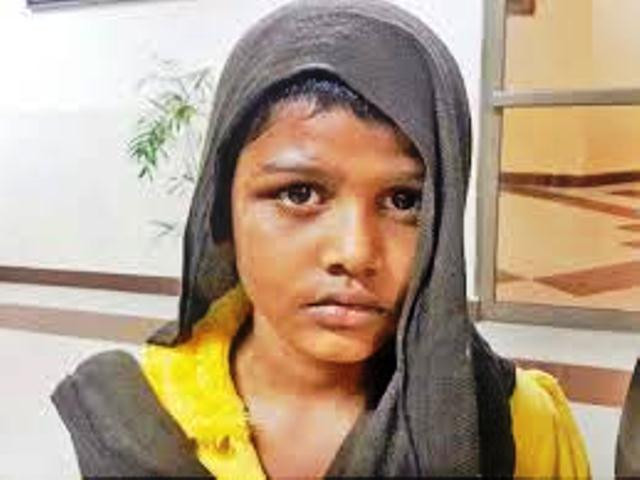One year on, tortured child maid still awaits justice
Rights activists say trial of ex-judge, wife should have been expedited in view of SC’s suo motu notice

The development comes days after the court had dismissed a compromise struck between the suspects and 10-year-old Tayyaba’s parents, wherein they had forgiven the judge and his wife “in the name of God”. PHOTO: Reuters/File
This 10-year-old servant, Tayyaba, is still awaiting justice as the trial of the former judge and his wife lingers on at the Islamabad High Court (IHC) to the consternation of rights activists.
The couple have been accused of keeping the girl in wrongful confinement, burning her hand, beating her with a ladle, detaining her in a storeroom, and threatening her with even worse. They have, however, pleaded ‘not guilty’ and are currently standing trial.
Police recover another tortured child maid
The gruesome story of the juvenile maid had revealed the cruel relationship between ‘masters and servants’ and government’s cosmetic measures to protect children.
It had unearthed the way two judges of a district court and a lawyer worked at breakneck pace to clear the judge and his wife of allegations of mistreating the child. The fact that the maximum penalty for pledging the labour of a child is only Rs250 in Pakistan had also emerged through the case.
Later on, the Supreme Court took a suo moto notice, voiced serious concerns at the loopholes in the ‘compromise’ reached under questionable circumstances, hasty handover of the child maid and the suspicious role of the counsel for her guardians. The SC while declaring it a ‘sordid incident’ had overruled the pardon granted to the couple by the girl’s parents in the name of God.
“The case is delayed a lot despite the SC’s suo motu notice and the attention it got,” said a human rights lawyer, Sharafat Chaudhry, who has provided assistance in legislation for child rights to provinces and the Islamabad Capital Territory (ICT). “It should have concluded within 4-5 months,” he said.
Police validate child maid torture
Chaudhry revealed that the ICT Child Protection Bill, 2017, has yet to be imposed in the capital as opposed to other provinces where similar legislations have already been imposed. He said the bill has yet to be tabled before the National Assembly and Senate contrary to some passed ‘overnight’.
“The pending legislation should have been the top priority given the alarming situation of the child rights in the federal capital,” he said, “Capital should lead by example.”
Valerie Khan, a Franco-Pakistani human rights activist working to promote women and child rights, said the higher judiciary has shown the will in the case but one year has passed and still “the best interest of child is not at heart in lower judiciary”.
She suggested setting up a special court to deal with cases of children as recently done by the Lahore High Court’s (LHC) Chief Justice Syed Mansoor Ali Shah. “Quick disposal of the cases is the fundamental principle not just in this case but all other cases of children,” she added.
For Khan, child’s exploitation is not the solution to poverty. She believes parents’ empowerment by enforcing the minimum wages is the only solution to the child domestic labour.
Khan said ‘inadequate charges’ have been inserted in the case as the ‘offenders’ have not been accused of charges dealing with burning and trafficking of the child despite mentioning of burn injuries at least 12 times in the medical report and availability of penal sections in this regard.
“This child is voiceless and the prosecution doesn’t take child’s interests at heart,” she added.



















COMMENTS
Comments are moderated and generally will be posted if they are on-topic and not abusive.
For more information, please see our Comments FAQ